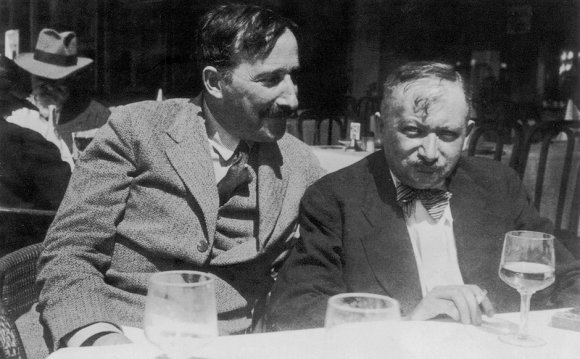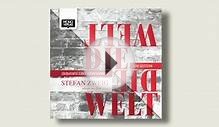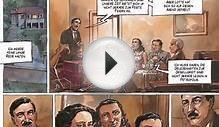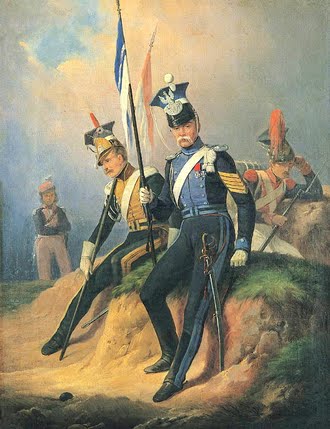
Zweig painstakingly cultivated his image as a supremely civilized man of letters, but his most memorable work draws its energy from frail, tormented self that put beneath. Credit Photo Courtesy Atrium Press
On February 22, 1942, the Austrian writer Stefan Zweig along with his 2nd partner decided to go to the bed room of a rented home in Petrópolis, Brazil. They put down—she in a kimono, he in a shirt and tie—after using an enormous dosage of barbiturates. When news of the suicides broke, it absolutely was reported as a matter of worldwide importance. The brand new York occasions transported the news headlines on its front-page, alongside reports associated with the rout of Japanese forces in Bali as well as a broadcast address by President Roosevelt. An editorial the very next day, titled “One associated with Dispossessed, ” saw in Zweig’s final work “the dilemmas of this exile for conscience sake.” Zweig, a Jew, had kept Austria in 1934, staying in England and New York before the last proceed to Brazil, and his work was prohibited and vilified across the German-speaking world. Inside the committing suicide note, he spoke of “my own language having disappeared from me and my religious home, European countries, having destroyed it self.” He concluded, “I salute all my friends! Whether it's issued them yet to understand dawn after the long evening! I, all too impatient, carry on before.”
Zweig’s death arguably noted the high point of his literary standing: to the majority of English-speaking visitors, he is today a bit more than a title. However, for some time, in the nineteen-twenties and thirties, he was many translated journalist in Europe. Combined with fiction while the biographies on which his reputation mainly rests, he produced a seemingly effortless stream of plays, translations, poems, travelogues, and essays—on subjects which range from manuscripts to Moscow theater. A dynamic literary spokesman and PEN member, he lectured, in a number of languages, around the globe. He also championed a great many other authors, assisting all of them financially and with shining appraisals of their work.
Beside contemporaries like Thomas Mann and Joseph Roth, Zweig can appear to be an also-ran; he left no single, defining masterwork. But, previously couple of years, it's become possible to understand anew the variety and aspiration of their writing. New York Evaluation Books and Pushkin Press have reissued most of Zweig’s important fiction, usually in fine new translations by Anthea Bell, and numerous his biographical studies. They have additionally published translations—the very first ever—of an abandoned novel, “The Post-Office Girl, ” as well as a long-lost novella, “Journey into the Past.”
Today Pushkin Press has released a revealing new biography of Zweig, “Three life, ” by Oliver Matuschek (converted, through the German, by Allan Blunden). The story of Zweig’s life has long been ruled by the type of it he informed in the memoir, “The World of Yesterday, ” one of his true best-known works. Finished significantly less than a year before Zweig killed himself, “The realm of Yesterday” is less an autobiography—he mentions their two marriages just in passing—than a manifesto about their era. He portrays himself as an idealist, devoted to the reason for intercontinental brotherhood, whilst Europe collapses around him. Subsequent books mainly bolstered this narrative—first, memoirs by Zweig’s first spouse, Friderike; then, in 1972, a comprehensive biography by D. A. Prater, produced under Friderike’s watchful attention. But Matuschek shows the extent that Zweig’s community façade masked a tormented and unpredictable exclusive self. The Zweig that emerges is not very the ethical expert he avowedly aspired becoming. He’s more vibrant and real human, and his frailties, instead of his noble aspirations, emerge since the supply of their most useful work.
The determining fact of Stefan Zweig’s life was the fantastic wide range to which he was produced. This gave him the freedom to arrange their existence while he desired, shuttling restlessly around European countries and maintaining a careful liberty from individual and professional ties. A pal when remarked that, wherever you met Zweig, his manner recommended a half-packed suitcase next area. He had been born in Vienna in 1881, the 2nd son of an effective textile manufacturer and a woman from an Italian-Jewish banking family members. While nonetheless at school, he began submitting poems and articles to literary journals and giving down ingratiating letters toward great literary males of his day. He in addition began a manuscript collection: once he had been sixteen, he had product by Goethe and Beethoven, and over time the collection became one of the more essential in Europe, containing these types of treasures as a catalogue of Mozart’s works in composer’s own hand and Beethoven’s composing desk. Zweig wrote that his collecting grew out-of his fascination with “the biographical and psychological aspects of the creation of a work of art.” Friderike took a subtly various view, noting so it manifested a desire for “escape from everyday things in to the world of great achievement, obvious inside the entire mode of life.”
When he had been nevertheless an university student, Zweig published their first volume of poetry, along with his work starred in many illustrious Viennese magazine of this day. (Theodor Herzl was their editor.) His success persuaded his moms and dads he could possibly be excused from doing work in the family business. He proceeded from Vienna to study in Berlin, and was activated by its seedy social life, a stark comparison to Vienna’s faith of bourgeois propriety. So started a mode of life that proceeded for 10 years or more—a peaceful bachelor presence in Vienna interspersed with sojourns overseas, making the friend of crucial imaginative numbers for the time. In Brussels, he befriended the French-Belgian poet Émile Verhaeren and instantly go about translating his works; in Paris, he reached understand Rainer Maria Rilke and Romain Rolland. He found Rodin, Yeats, Pirandello, Valéry, and many more. It really is appealing to see his sedulous gathering of eminent friendships as a counterpart of his manuscript gathering.
In “The World of Yesterday, ” the part addressing this era is entitled “Detours on the path to Myself.” Zweig writes that “my life was still influenced in a few odd means because of the idea that everything was only short-term. Nothing that i did so, I told myself, had been the actual thing—not in my work, that we thought to be only experimenting to find my true bent, not the ladies with who I happened to be on friendly terms.” But, though a large amount of the first work seems tentative, the majority of it absolutely was effective at the time, and then he quickly realized considerable celebrity. After poetry, he attempted crisis, along with his memoir has actually several faux-ingenuous information of how, having sent this or that play to a theatre, he was astonished whenever theatre chose to put it on, or by the general public recognition that then followed. He additionally typed their very first novellas, a form that stumbled on dominate his fictional production.
See also:- Please visit site https://movietone-portraits.com/.
RELATED VIDEO




 Uhlans (in Polish: "Ułan"; "Ulan" in German) were Polish light cavalry armed with lances, sabres and pistols. The title was later used by lancer regiments in the Russian, Prussian, and Austrian armies.
Uhlans (in Polish: "Ułan"; "Ulan" in German) were Polish light cavalry armed with lances, sabres and pistols. The title was later used by lancer regiments in the Russian, Prussian, and Austrian armies.







